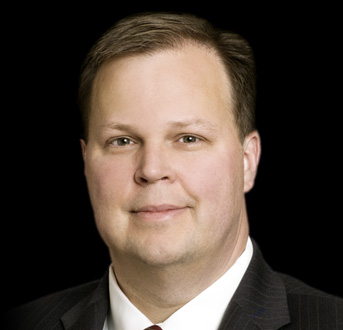If television crime dramas and legal thrillers are to be taken at face value, a lawyer’s career is comprised of one intense courtroom showdown after another. Rarely does fiction unveil the critical sub rosa work that attorneys and law firms do in order to support their clients.
Richmond attorney Marc Purintun JD ’00 emphasized the latter approach as a method of assisting the LGBT community through legal work in his lecture at the College William and Mary’s Marshall-Wythe School of Law Tuesday. The event was co-sponsored by the Law School’s American Constitutional Society and LGBT Equality Alliance.
According to ACS President Violet Boggs J.D. ’15, the lecture gave students a glimpse into the essential legal activities that work outside of litigating LGBT-related cases.
“I personally want to go into litigation,” Boggs said. “The biggest takeaway for me is that there’s a lot of work that needs to be done that has nothing to do with litigation. I don’t always think about all of that transactional stuff that you have to deal with.”
Purintun stressed the importance of interpretive and transactional pro bono work for aiding LGBT organizations. His examples ranged from straightforward legal advice to the analysis of corporate documents and tax exemption identification for gay rights advocacy groups.
Fledgling activist groups often consist largely of volunteers who may struggle to grasp federal laws and tax codes. Legal assistance in complicated and tedious matters such as IRS filings allows such parties to develop into effective and efficient factions and avoid an early demise due to legal troubles and corporate confusion. Pro bono work can mean the difference between an advocacy organization thriving and disbanding.
In addition to advice on behind-the-scenes pro bono work, Purintun also offered his thoughts on dealing with difficult clients, representing individuals versus associations and banishing discrimination in law firms.
“So, I was supposed to give this exciting, upbeat discussion on being an advocate,” Purintun said. “I think that you should be an advocate for LGBT rights, but I don’t think it’s always exciting or upbeat. But, I think you can still move the ball forward.”
The small audience listened quietly to Purintun’s lecture and raised few questions at its conclusion. The group was largely composed of first- and second-year law students. Boggs had hoped to see more third-year students in attendance, but was pleased by the speech’s informative nature.
“I think the takeaway was how, as you go into your legal profession, pro bono cases are very important,” Boggs said. “You can enhance your community through legal work.”
Equality Alliance Secretary Beth Budnick J.D. ’14 explained that the talk was intended to advise future lawyers on balancing a successful legal career with continuing support of LGBT rights. She noted that guest lecturers’ real life experience provides law students with helpful insight on the legal world.
“We have this big conference in the fall that we’re going to try to do every other year. We have a lot of speakers come down, that’s another thing,” Budnick said.
Budnick expects these speakers to shed light on ways for gay members of the legal community to handle oppression from their jobs without giving up their identity. Members of the LGBT community working in law might face prejudice in a number of ways, including a legal firm’s lack of an anti-discrimination clause.
Purintun described the advances that the world of law has made in terms of LGBT equality in recent years. Corporate equality index rankings evaluate individual law firms on their LGBT equality status. Due to the competitive nature of the business, many firms strive to score consistently higher on such scales and enact equality-promoting policies in order to achieve better scores.
Despite encouraging law students to advocate through legal representation, Purintun asserted that attorneys should only reveal their personal feelings and agendas to clients if asked to do so.
“[In certain settings], I think it’s important for attorneys to be able to step up and to be able to express your opinion,” Purintun said. “Sometimes, you have to ask, not only what is the legal thing to do, but what is the right thing to do?”

